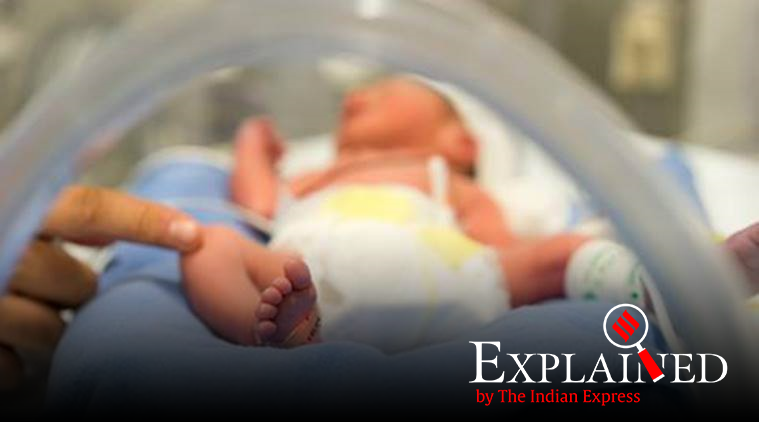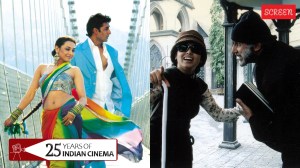Explained: A child of Indian parents gets a birth certificate in UAE. Why is this unusual?
The move comes against the backdrop of other conciliatory measures that the oil-rich nation has taken in 2019, a year which it has labelled the ‘Year of Tolerance’.
 With help from the Indian Embassy, the couple was able to convince the justice department to make an exception in their case.
With help from the Indian Embassy, the couple was able to convince the justice department to make an exception in their case.
Authorities in the United Arab Emirates recently broke with tradition after they issued a birth certificate for a child born to a non-Muslim man and a Muslim woman, both expatriates from India.
The UAE, along with many other Islamic countries in the region, follows personal laws that are inspired by Sharia law.
The move comes against the backdrop of other conciliatory measures that the oil-rich nation has taken in 2019, a year which it has labelled the ‘Year of Tolerance’.
The legal difficulty
Indian nationals Kiran Babu and Sanam Saboo Siddique got married in Kerala in 2016, and moved to the UAE the next year. Emirati authorities refused to issue a birth certificate for their child who was born in the UAE in 2018.
According to the Thompson Reuters Practical Law website, the following kinds of marriages are not recognised in the UAE, even if a valid marriage certificate has been issued by the country in which the marriage has taken place:
* Marriage between partners of the same sex
* Marriage between a Muslim woman and a non-Muslim man
* Marriage of a Muslim man with a woman of another religion other than Christian and Jewish
* Civil marriages between Muslims; only religious marriage ceremonies between Muslims are recognised
With help from the Indian Embassy, the couple was able to convince the justice department to make an exception in their case.
The UAE-based Khaleej Times has called the move a new precedent in the country.
UAE’s legal system
Since the UAE emerged as a federation in 1971, the country has charted differing paths in its economic and cultural spheres. On the economic front, the nation embraced liberalization, signing treaties such as the New York Arbitration Convention– facilitating the country’s rise as a trade hub.
On the social front, the country adopted a more nuanced approach, and has refused to distance itself from Sharia law. It ratified the Convention on the Elimination of All Forms of Discrimination against Women (CEDAW) and the Convention on the Rights of the Child (CRC) only after expressing multiple reservations.
Civil jurisprudence in the UAE has been influenced by the legal system in Egypt, and it also contains some of the features of French civil law. According to Article 7 of the UAE’s Constitution: “Islam is the official religion of the Union. The Islamic Shari’ah shall be a main source of legislation in the Union.” The nation’s Personal Status Code also extends to non-Emiratis, unless they choose follow the legal system of their home country.
The 2019 ‘Year of Tolerance’
Following the 2018 ‘Year of Zayed’, the UAE is celebrating 2019 as the ‘Year of Tolerance’ as an effort to reach out to the diverse communities that reside in the country.
As part of the initiative, a new ministry has been formed to promote tolerance, and a mosque in Abu Dhabi was renamed ‘Mariam, Umm Eisa’— Arabic for ‘Mary, the mother of Jesus’. In February, the nation made headlines when it hosted together Catholic Pope Francis and the Grand Imam of Al Azhar, a top Sunni cleric. The construction of a Hindu temple is also under way in Abu Dhabi.
85% of the country’s population consists of foreign residents, with more than 33 lakh Indians residing here. The country has so far refused to extend political rights to non-nationals.



- 01
- 02
- 03
- 04
- 05



































